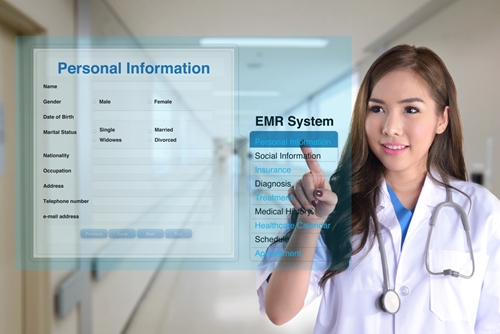5 ways EHRs have changed the health care industry
The health care industry has made great strides over the years toward better patient health outcomes and overall quality of care delivery. EHRs are a key player is these advancements. Here are five ways EHRs have contributed to the many changes that have occurred across the sector.
1. Patient outcomes
Since EHRs have taken center stage in most hospital and practice settings, the majority of providers have seen upswings in patient outcomes. In fact, the National Center for Health Statistics conducted a national survey that found 75 percent of providers believed that their EHRs enable them to offer enhanced patient care.
According to HealthIT.gov, these systems do more than simply store and transmit health data, but also leverage the information for the benefit of the patients. For example, EHRs automatically assess any new medications patients are taking for potential problems based off their allergy records. It alerts the physician to these potential issues.
The interoperability that EHRs offer has also contributed to improved patient care outcomes. When someone has a serious allergy, for example, this information is gathered by their primary care doctor and entered into the EHR. If the patient ends up in the hospital for emergency care, the clinician will have access to this data and care for the patient appropriately. This is particularly important when the patient is unconscious or unresponsive. Before health IT was available to doctors, providers in emergency care settings rarely had access to this key data, which increased the risk of serious consequences to the patient's health.
2. Public health outcomes
When providers have access to electronic data concerning the health of the entire population of their patients, they can identify certain trends. For example, they can see which patients are being treated for a specific condition, taking certain medications and eligible for specific preventative measures.
This population health information allows physicians to work with their patients to manage risk factors to enhance their health. If they find a large number of patients with diabetes do not have their blood sugar measurements in target range or have not had the screening tests they need, doctors can act by working closely with this specific group, explained HealthIT.gov. EHRs will identify patterns of adverse events that are potentially related to their conditions so providers can alert them as quickly as possible.
3. Care delivery
With the implementation of EHRs, providers' workflows are a lot less time-consuming than they were with paper-based methods. When patient health and financial management information is electronically entered into the system, input errors are reduced, decreasing the risk of problems like objections of reimbursement claims.
Routine tasks have become less of a burden thanks to increased automation and the ability to view patient data on portable devices like mobile phones. This increases speed and productivity, giving doctors more quality face-to-face time with patients. Recent surveys have shown that this trend has continued from the early EHR days to 2016.
#HIMSS survey shows #physician #EHR use benefits quality performance & productivity https://t.co/d2EUnBSfpj @EHRIntel
— Hello Health (@hellohealth) January 13, 2016
4. Expected skill sets
As the majority of hospitals and practices have transitioned from paper-based workflows to EHRs, it has become essential for health care employees to feel comfortable using health IT. This is particularly true for nurses, who are often responsible for inputting patient data and handling a lot of the EHR-based tasks on a daily basis. If nurses and physicians want to continue advancing their careers, it is now suggested that they not only embrace the new technology, but have some experience with it.
"Nurses will be taught the skills they need when the hospital implements the [EHR], but it's crucially important for nurses to embrace the technology rather than saying 'no this is not for me'," Dr. Aaron Glatt of Mercy Medical Center in Rockville Centre, Long Island, New York, told Monster Inc.
5. Health on the go
One of the biggest technological advancements that the health care industry has seen over the past few years is the emergence of EHRs that pair with mobile technology. There are systems that enable providers to view patient information and connect with patients in real-time on their smartphones.
According to Power Your Practice, research has shown that the majority of providers now use mobile devices to improve patient care. Not only do mobile apps allow health professionals to stay connected to patient data on the go, but they also streamline processes like reviewing test results and appointment management.
"Tech-savvy physicians, especially recent graduates, increasingly rely on digital and Internet-based tools to communicate with patients and improve the medical outcomes of the care they provide," said Sandra Garrett, president of Jackson & Coker,
EHRs have played a major role in the ability of the health care industry to continue evolving and improving its overall quality of care. As vendors design products with new tools and usable interfaces, EHRs are expected to continue to provide invaluable benefits for providers in hospital settings and small practices alike.



